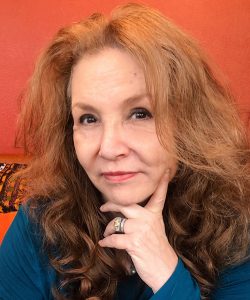
VDC’s Collaborative Trust & Estate Professionals
Trained in both Mediation and the interdisciplinary-team Collaborative Trusts & Estates Protocols, VDC’s Trusts & Estates (T & E) Professionals are: attorneys, financial specialists and licensed mental health professionals. Experienced experts support families’ with estate planning designed to avoid later disputes, and to resolve any later disputes between heirs, without the adversarial approaches used in court. Directly contact and interview any professional to get started.
What’s ‘Special’ About Collaborative T & E Attorneys?
Collaboratively-trained Trusts & Estates (T & E) attorneys are taught to notice and address at least two critical variables beyond the legal sphere that can adversely impact your T & E plan. Without collaborative training, T & E attorneys often ignore two threats to the long-term effectiveness of any estate plan:
a) Pre-existing and strained interpersonal dynamics among your heirs, and
b) Financial variables directly related to their different perspectives.
Collaboratively-trained T & E attorneys retain legal control of estate planning, while also being free to “collaborate,” only when needed, with trained clinicians and financial specialists equipped to address critical non-legal variables. Consequently, collaborative T & E attorneys are far better equipped to fulfill on a commitment to further the long-term, positive impact of your legacy on your heirs.
Collaborative Trusts & Estates
Planning & Resolutions – Two Distinct Processes
T & E Planning
Trust-makers (“trustors”) select a Collaboratively-Trained T & E attorney to memorialize their interests and intentions in their Estate Plan. Collaborative training qualifies Trusts & Estates (T & E) attorneys to determine whether dynamics amongst heirs and a financial analyses related to their different concerns require additional, non-legal help to move forward, and avoid later disputes. Estate planning is informed, only when needed, by a Financial Specialist and/or licensed Mental Health Professional (MHP) to help ensure your estate is not depleted by court conflict after you’re gone.
T & E Dispute Resolutions
After trustors have passed, VDC’s T & E professionals also help resolve any disputes among beneficiaries with mediation and collaborative approaches. Again, the collaboratively-trained financial specialist and MHP are included only when specific clinical and financial skills are needed. When mediated or collaborative dispute resolution is needed after you’re gone, beneficiaries will need as many collaborative attorneys as there are separate legal interests. (Beneficiaries also need their own lawyers when there are more costly, adversarial court battles between beneficiaries.) In a collaborative dispute resolution process, it also possible for a single collaboratively-trained attorney to write up all the agreements to reduce clients’ costs.
Alleviating Tensions Among Beneficiaries
Before You’re Gone:
How It Works & Why It Matters
Collaboratively-trained Mental Health Professionals (MHP’s) serve as neutral “family mediators,” even while usually paid by the trustors. MHP’s often begin with individual interviews with the trustors and beneficiaries. Their aim is: to facilitate difficult yet necessary conversations, to secure understanding at multiple levels, and to avoid your trust being drained when you’re gone by court battles between beneficiaries. A neutral, “family mediating” Financial Specialist gathers and analyzes financial data relevant to participants’ various concerns, if needed. The collaboratively-trained MHP is not out to “resolve” all differences, or to get all beneficiaries to “agree” with the trustors. Trustors always make all final decisions.
Skills unique to the MHP’s license allow them to name relevant elephants in the room, to clarify and shed light on misinformation, to encourage and help ensure the respectful sharing of disparate points of view/experience, and to work with the financial neutral to identify any missing financial data that may clarify or eliminate concerns. Relevant family issues are addressed, including negative assumptions, judgments and rigid family roles (for example, the responsible one, the nurturing one, the ne’er-do-well, etc.) that may have persisted for decades.
Case Study: How Collaborative
Teams Work to Create Estate Plans
That Avoid Later Disputes
Consider the common case of trustors who want to leave the house to the full-time caregiving sister, while her siblings consider her a leech, question her motives and fear her undue influence over the parents. In this scenario, the caregiving sister is the perfect target for later litigation in the absence of greater understanding. The elderly parents initially seemed reluctant to move forward with their estate planning, and then quietly disappeared off their T & E attorney’s radar. Their collaboratively-trained T & E attorney suspected that problematic dynamics between beneficiaries were the stumbling block, clarified the critical value of the added expense of an MHP, and later, also brought in a financial specialist.
The neutral, mediating MHP assessed that the siblings had no idea what the care-giving sibling was providing throughout each day and night. Nor did they understand that she gave up her good-paying, full-time job with benefits to take on caregiving. Furthermore, the other siblings had no idea what it would cost to ensure full-time, 24-hour care for two frail, elderly parents.
The financial neutral was able to provide a comparative analysis of what current comparable incomes were for the caregiver’s forfeited employment, what different local assisted living facilities would charge for both parents, and what different full-time, in-home care agencies would charge including food, grocery shopping, meal preparation, transportation to doctors’ appointments, dispensing of medications, and coordination of home cleaning, maintenance, repairs, etc. This hard financial data clarified and provided significant relief from conflict and tension around the issues identified by the MHP.
Once tension, negative assumptions and judgments were significantly reduced by the MHP and financial specialist, the elderly parents were equipped to move forward with their estate plan. Their T & E attorney was able to help the trustors create an estate plan rooted in the trustors’ and beneficiaries’ solid understanding of their shared concerns. Together, the attorney and trustors developed a plan that included the trustors’ desire to compensate the caregiver in a way the entire family would accept.
Addressing such issues during the Estate Planning phase, before trustors have passed, avoided the family’s trust being drained by later disputes that were likely to have deepened unaddressed rifts between the heirs.

